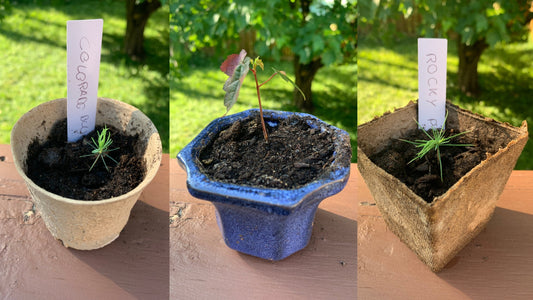It's finally time to answer a question that everyone asks themselves before going to Japan: am I at risk of having my towel stolen by a monkey when I visit a natural onsen?
Do these enchanting thermal springs, synonymous with relaxation and well-being, really hide an army of macaques ready to dive into the hot water alongside you? Prepare to demystify onsen and immerse yourself in a world where tradition, legends and unusual encounters combine to offer an unforgettable experience. Whether you're a fan of hot baths or simply curious about what's behind those soothing steams, this article will tell you everything you need to know before venturing into these iconic Japanese baths.
1. What is an Onsen?
Imagine yourself immersed in natural warm water, surrounded by breathtaking mountain landscapes, gentle steam floating around you. Welcome to the world of onsen , the Japanese thermal springs that so many travelers dream of. But before you rush there and risk slipping on a wet stone, let's delve into the fascinating history of onsen.

Onsen are much more than just a hot bath. These hot springs, fed by Japan's volcanic activity, are a true national treasure, cherished for millennia. Their history dates back to Antiquity, where the first inhabitants of the Japanese archipelago discovered the benefits of these miraculous waters. Originally used for their therapeutic properties, onsen quickly became a central part of Japanese culture and society.
The first historical records mentioning onsen date from the Nara period (710-794), but their popularity really exploded during the Edo period (1603-1868), where they were frequented by samurai, monks, and even emperors. The healing powers of these mineral-rich waters, ranging from sulfur to iron to sodium, were known to cure everything from joint pain to skin diseases.
Today, onsen are not only places of relaxation, but also sanctuaries of well-being and purification, anchored in Japanese tradition. They embody an art of living, where the stress of modern life evaporates in soothing vapors, and where every visitor, whether local or foreigner, can taste a piece of Japanese history and culture.
2. Did samurai really bathe in onsen?

(Ghost of Thushima game.)
All gamers see the scene: Jin Sakai, exhausted by his fight to repel the Mongol invader, gets off his horse, shows us his posterior before throwing himself into the peace and quiet of the natural hot springs. He uses this time to recharge his batteries, refill his health bar, and meditate on such important thoughts as the survival of Tsushima Island. (Those who are interested in the game after this noble discussion, see Ghost of Tsushima.) These scenes in the game refer to a legendary tradition: yes, the samurai bathed in the Onsen after their great battle.
Samurai frequented onsen not only to wash, but also to heal. The mineral-rich waters helped heal their wounds and relieve muscle pain. Hot baths were considered a form of therapy, essential for maintaining the strength and endurance necessary for their martial activities.
Beyond the therapeutic aspects, onsen also served as places of meditation and reflection for the samurai. In a serene environment, surrounded by nature, they could find the peace of mind and clarity needed to plan their next strategies.
3. The medicinal benefits of onsen
Immersing yourself in an onsen is not only a moment of ultimate relaxation, it is also a real therapy for the body and mind. Japanese onsen are renowned for their waters rich in minerals with multiple medicinal properties. Each hot spring has a unique mineral composition that can provide various health benefits.
Sulfur waters, for example, are famous for their ability to soothe skin problems like eczema and psoriasis. They also have anti-inflammatory properties that can relieve joint and muscle pain. Sources containing iron are beneficial for people suffering from anemia because they help increase iron levels in the blood.
Bicarbonate waters, often found in alkaline onsen, are perfect for softening and exfoliating the skin, leaving it feeling incomparably soft. They are also known to improve blood circulation, helping to reduce blood pressure and promote better cardiovascular health.
Additionally, immersion in a hot onsen helps relax tense muscles, reduce stress, and improve sleep. The warmth of the water stimulates the production of endorphins, the feel-good hormones, which can relieve pain and provide a feeling of happiness and relaxation.
4. Difference between Sentō and Onsen?
So yes, the Japanese are passionate about baths, we see it in any anime or TV series. They spend their time alone or in groups floating in warm water. But how to recognize the real Onsen of public baths? At first glance, onsen and Japanese public baths, or sentō , may seem similar: both offer relaxing, warm baths. However, the main distinction lies in the origin of the water.
Onsen use water naturally heated by geothermal activity, often rich in health-promoting minerals.
The Sentō, on the other hand, use ordinary water heated artificially, without the same therapeutic properties.
Basically, an onsen is like bathing in nature itself, while a Sentō is closer to a giant, social bathtub. Yeah a social bathtub…strange.
5. Are we naked in an Onsen?
Ah, the big question that torments many Western minds: do you really have to get naked in an onsen? The short answer is yes, Absolutely! In Japanese tradition, clothing is strictly prohibited in onsen. It may seem intimidating at first, but it's a liberating experience and completely normal for Japanese people.
To prepare for your visit, here are some essential tips:
- Preliminary shower : Before entering the baths, it is imperative to wash well and rinse in the shower. The facilities usually have small stools, soaps and shampoos. Make sure you are clean to maintain the purity of the onsen water.
- Towels : You will often have two towels – a large one for drying yourself after bathing, and a small one for washing yourself. The small towel can be used to cover some of your modesty while moving around, but it should never touch the onsen water.
- Long hair : If you have long hair, tie it up to prevent it from touching the water. This helps keep the water clean for all swimmers.
- Bath etiquette : Be respectful and discreet. Avoid diving, swimming or making noise. The goal is to relax and enjoy the calm.
- Hydration : Onsen can be dehydrating due to the heat. Make sure to drink water before and after your bath to stay well hydrated.
6. Is it true about tattoos banned in Onsen?
Ah, tattoos and onsen are a complicated story. Traditionally, tattoos are associated with the yakuza , the Japanese mafia, which explains why many onsen prohibit access to people with tattoos. This ban is intended to create a comfortable, intimidation-free environment for all visitors.
However, times are changing, and with the number of foreign tourists increasing, more and more onsen are relaxing their rules. Some establishments now accept tattooed visitors, provided the tattoos are discreet or covered by specific dressings provided by the onsen. Still others have reserved sections where tattoos are tolerated.
If you have tattoos and want to visit an onsen, here are some practical tips:
- Look for tattoo-friendly onsen : More and more tourist guides and websites list onsen that accept tattooed visitors. It is worth checking in advance to avoid disappointment.
- Use tattoo covers : In some onsen, it is possible to cover your tattoos with special bandages. These dressings are often available at reception.
- Choose private onsen : Many ryokan (traditional inns) offer private onsen baths where you can relax in peace without worrying about your tattoos.
- Be respectful and discreet : If your tattoos are small, try to cover them as much as possible out of respect for local traditions.
By following these tips, you will be able to enjoy the benefits of onsen without worries. Japan is evolving, and onsen are gradually becoming more inclusive, but it is always good to be prepared and respect local customs.
7. And so the monkeys? Are there any in the Onsen?
The question is legitimate and amusing: do monkeys really bathe in onsen? The answer is yes, but not just anywhere. To observe this unique spectacle, you must go to the Jigokudani Monkey Park in Nagano Prefecture. This park is famous for its Japanese macaques , also called "snow monkeys", which happily lounge in the hot springs, especially in winter.

Unlike humans, these macaques do not need to shower before entering the water, and they seem perfectly comfortable sharing these natural baths with each other. The phenomenon was first observed in the 1960s, when monkeys began imitating humans by slipping into onsen to warm up on cold winter days.
Although you're unlikely to encounter a monkey stealing your towel in a human-only onsen, the idea of sharing a hot bath with these adorable creatures makes you smile. Their presence in the Jigokudani onsen has become a major tourist attraction, attracting visitors from all over the world eager to capture this rare and adorable moment.
So, if you've always dreamed of seeing monkeys relaxing in a hot bath, head to Jigokudani! But rest assured, in traditional onsen for humans, you can enjoy your bath in complete peace, without fearing an invasion of mischievous macaques.




